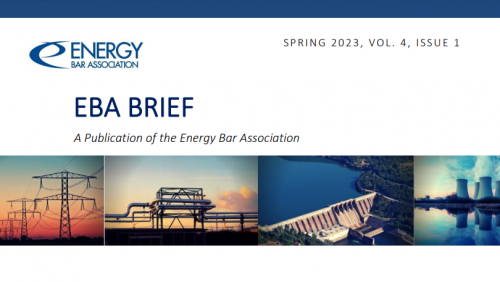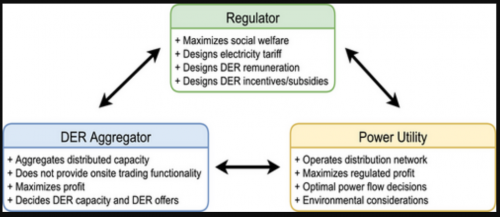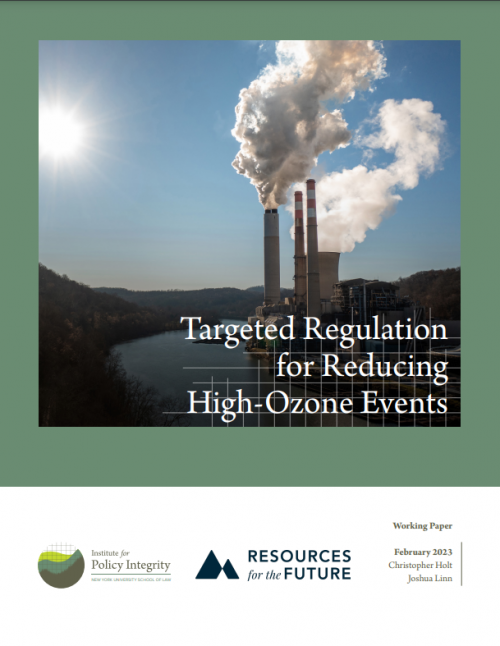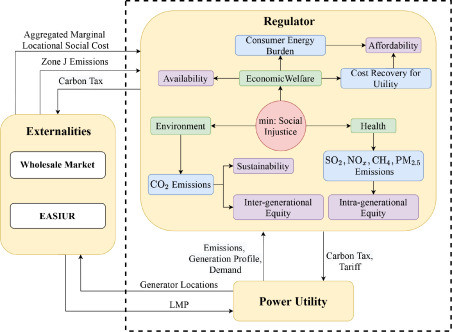-

The Impact of West Virginia v. EPA on Challenges to FERC’s Authority Under the Major Questions Doctrine
Published in Energy Bar Association Brief
The Supreme Court’s recent applications of the major questions doctrine have prompted numerous challenges to pending or proposed regulatory actions, including the Federal Energy Regulatory Commission’s (FERC’s) proposed revisions to Order No. 1000’s regional transmission-planning and cost-allocation rules (Transmission Rulemaking) and updated draft policy statements on certification of new interstate natural gas facilities (Draft Policy Statements). This article addresses the impact of West Virginia v. EPA—the most recent Supreme Court case involving the major questions doctrine—on FERC’s regulatory authority.
-

Value of Distribution System Information for DER Deployment
Integration of Distributed Energy Resources (DERs) in power systems exacerbates the existing information problems between power utilities and regulators. DER policies oblivious to the trilemma of information asymmetry between power utilities, DER aggregators, and regulators result in distorted price signals to DER investors, and socially inefficient DER roll-out. Therefore, in this paper, a game-theoretic approach is proposed for modeling information asymmetry in distribution network information and consumer data between the DER aggregators and the power utilities.
-

Targeted Regulation for Reducing High-Ozone Events
Working paper
Nitrogen oxides (NOx) are a precursor to ground-level ozone, a pernicious pollutant that is harmful to human health and ecosystems. Despite decades of regulations and a sharp decline in NOx emissions, episodic high-ozone events prevent many areas from attaining air quality standards. Theoretically, spatially or temporally differentiated emissions prices could be more cost effective at reducing such events than a uniform price. To test this prediction, with data from EPA and NOAA spanning 2001–2019, this working paper uses novel empirical strategies to estimate (1) the link between hourly emissions and high-ozone events and (2) hourly marginal abatement costs. These estimates form the basis for simulations that compare uniform and differentiated emissions pricing. Consistent with economic theory, differentiated pricing is substantially more cost effective at reducing high-ozone events, but this advantage depends on the accuracy of the estimated NOx–ozone relationship.
-

Electricity Tariff Design via Lens of Energy Justice
Distributed Energy Resources (DERs) can significantly affect the net social benefit in power systems, raising concerns pertaining to distributional justice and equity. Current tariff design approaches suffer from opaque efficiency-equity trade-offs and are also agnostic of the externalities that affect both economic efficiency and equity. Therefore, this paper develops a justice-cognizant tariff design framework that improves the operational savings in the system without sacrificing distributional equity, and encompasses economic welfare, social costs of environmental and public health impacts, and socio-economic and demographic characteristics of electricity consumers. We evaluate four different tariff structures using a Multi-Objective Problem with Equilibrium Constraints. We then compare the operational savings and equity of the proposed framework using the 11-zone New York ISO and 7-bus Manhattan power networks. The results demonstrate that justice-cognizant, and spatially- and temporally-granular tariffs ensure equity and increase the operational savings at a lower energy burden to consumers.
-
Still Your Grandfather‘s Boiler: Estimating the Effects of the Clean Air Act‘s Grandfathering Provisions
Working paper
While vintage differentiation is a highly prominent feature of various regulations, it can induce significant biases. We study these biases in the context of New Source Review—a program within the US Clean Air Act imposing costly sulfur dioxide (SO2) abatement requirements on new boilers but not existing ones. In particular, we empirically investigate how the differential treatment of coal boilers shaped the generation landscape by affecting unit utilization, retirement, and emissions. Focusing solely on the additional SO2 emissions, we estimate annual costs of up to $65 billion associated with the vintage differentiation in New Source Review.
Viewing all publications in Academic Articles/Working Papers
